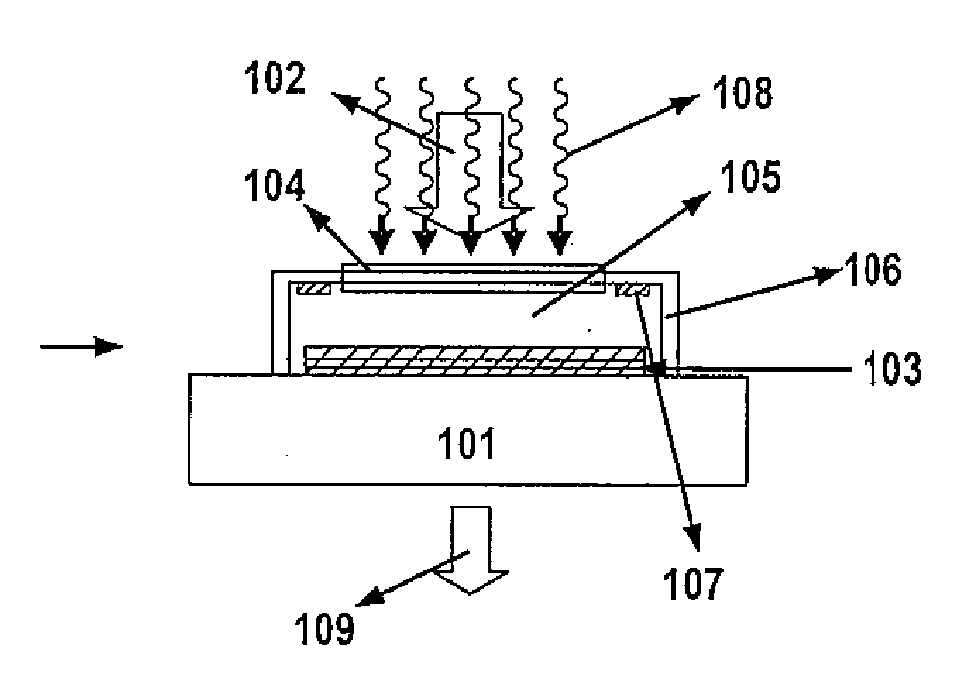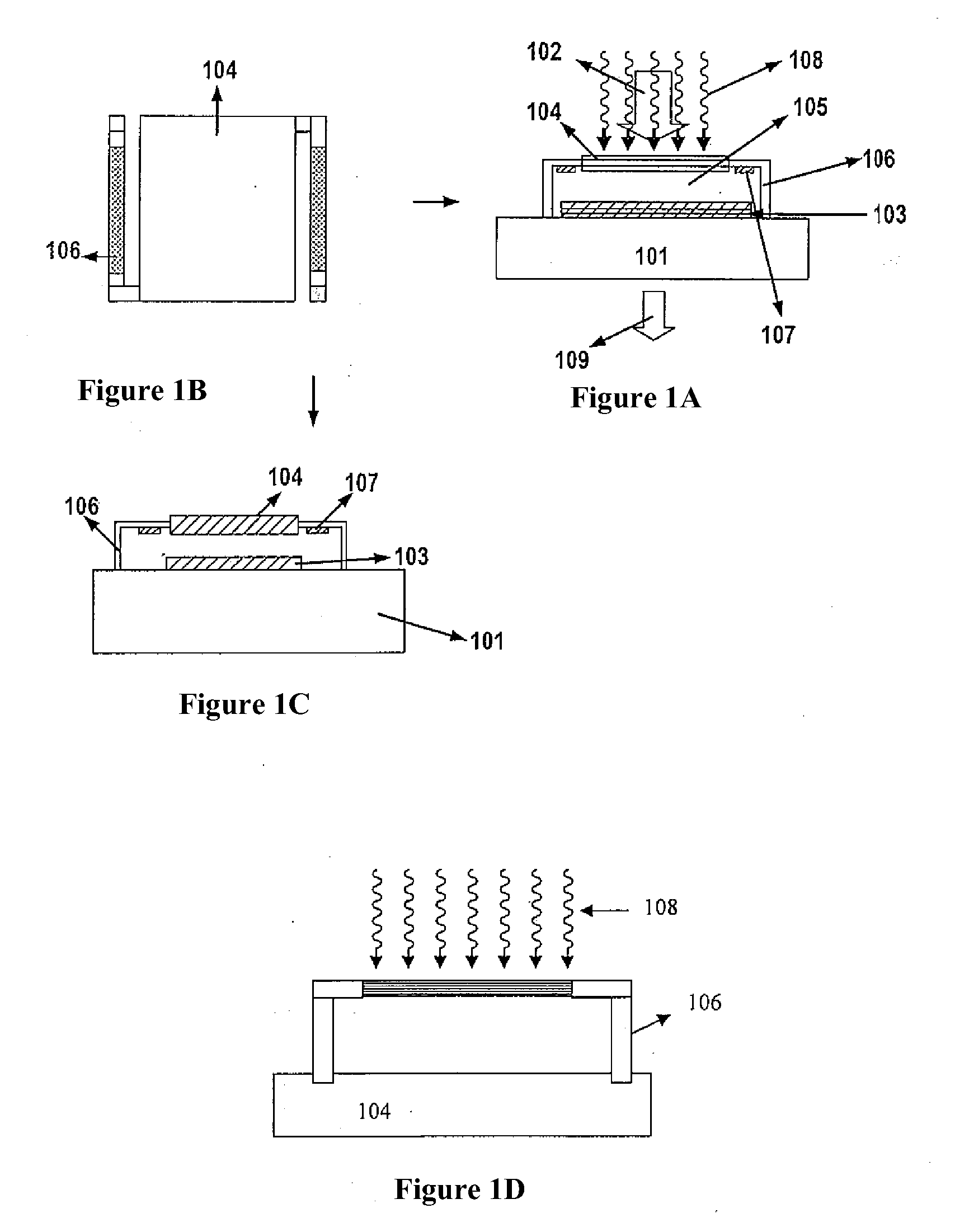Infrared sensors, focal plane arrays and thermal imaging systems
a technology of infrared sensors and thermal imaging systems, applied in the direction of optical radiation measurement, instruments, material analysis, etc., can solve the problems of difficult control of manufacturing process, difficult to make and expensive, and complicated readout optical setup
- Summary
- Abstract
- Description
- Claims
- Application Information
AI Technical Summary
Benefits of technology
Problems solved by technology
Method used
Image
Examples
Embodiment Construction
[0050]Various embodiments of the invention will be described in accordance with the following drawings.
[0051]FIGS. 1A-C shows one embodiment of an infrared sensor described in this invention. As shown in FIGS. 1A-C, the infrared sensor comprises a substrate (101), a reflective layer (103) that is above the substrate or suspended above the substrate, a suspended reflective layer (104) that is above the reflective layer (103) and forms a gap between the suspending reflective layer (104) and the reflective layer (103), and a beam (106) which supports the reflective layer (104) over the substrate (101). Alternatively, beam (106) supports the reflective layer (104) over the reflective layer (103), as shown in FIG. 5B. In FIGS. 1A-C, the substrate (101) can be silicon or other semiconductor materials. If the infrared sensor operates at transmission mode, the substrate (101) needs to be transparent to the incident reference light (102). Preferably, substrate (101) can be glass, other trans...
PUM
 Login to View More
Login to View More Abstract
Description
Claims
Application Information
 Login to View More
Login to View More - R&D
- Intellectual Property
- Life Sciences
- Materials
- Tech Scout
- Unparalleled Data Quality
- Higher Quality Content
- 60% Fewer Hallucinations
Browse by: Latest US Patents, China's latest patents, Technical Efficacy Thesaurus, Application Domain, Technology Topic, Popular Technical Reports.
© 2025 PatSnap. All rights reserved.Legal|Privacy policy|Modern Slavery Act Transparency Statement|Sitemap|About US| Contact US: help@patsnap.com



